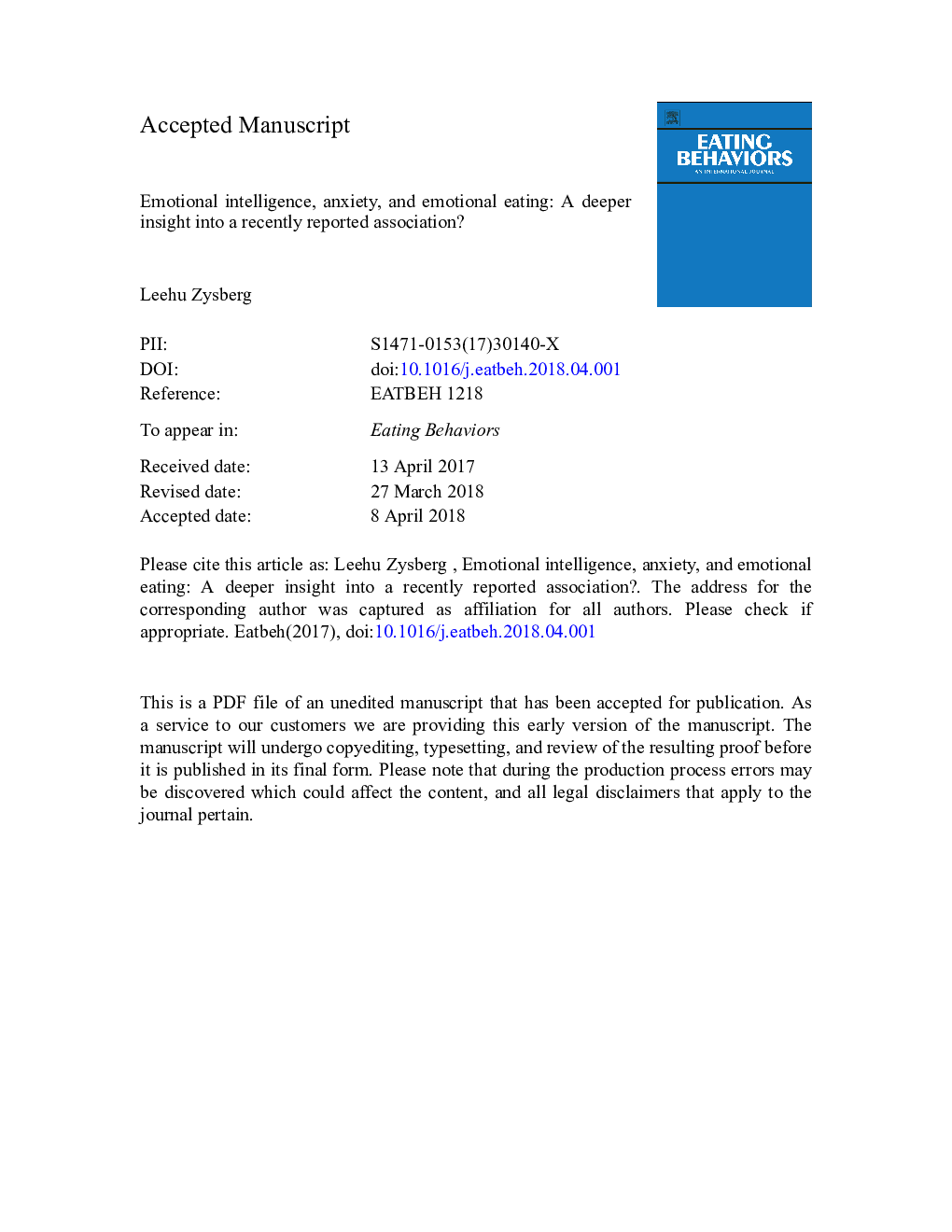| Article ID | Journal | Published Year | Pages | File Type |
|---|---|---|---|---|
| 7264948 | Eating Behaviors | 2018 | 24 Pages |
Abstract
Recent studies reported a negative association between emotional intelligence (EI: defined here as individual predispositions associated with effective identification and regulation of emotions) and emotional eating. Although theory provides some insights into how the concept represents mechanisms that may serve as protective factors, empirical evidence of the mechanism behind the association has yet to be presented. This study tested a proposed model in which anxiety levels mediate the association between emotional intelligence and emotional-eating patterns in a normative sample of women in Israel. A cross-sectional/correlational design was used to gather data from 208 generally healthy female participants who completed measures of trait emotional intelligence, anxiety, and tendency toward emotional eating, as well as demographics. Anxiety levels mediated the negative association between emotional intelligence and emotional eating. Background variables had only marginal involvement in this model. The results shed light on the mechanisms underlying the association between emotional intelligence and emotional eating. Should future studies corroborate the findings, they may serve as a basis for future screening protocols, prevention and interventions with individuals and groups at risk of EE and eating disorders.
Related Topics
Life Sciences
Neuroscience
Behavioral Neuroscience
Authors
Leehu Zysberg,
